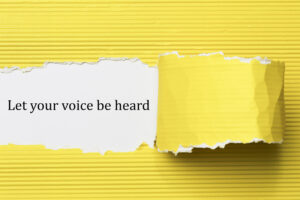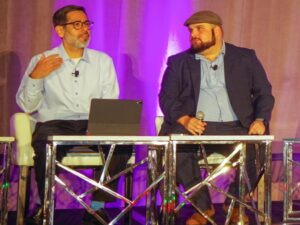How to practice for behavioral interview questions
Scenarios intended to test your problem-solving skills are to be expected in the job search process.

Last month, we covered storytelling and how it plays out during the interview process. This month, let’s take a deeper dive into crafting your narrative and preparing answers for the types of questions that you are likely to get.
During the interview process, you need to be prepared for anything. Nevertheless, most organizations still do some form of “behavioral interviews.”
Behavioral interview questions usually feature real-life scenarios and are designed to showcase your skills and experience, as well as attributes such as resilience, problem-solving, and a growth mindset.
Here are some examples to help you practice:
- Give an example of a goal you reached and tell me how you achieved it.
- Give an example of a goal you didn’t meet and how you handled it.
- Tell me about a time you were a team project leader. What would team members say about your capabilities and your work style?
- Share an example of how you were able to motivate colleagues during a difficult time.
- Tell me about a time when you had to adapt or alter your leadership approach while working with a group of direct reports.
- Describe a situation where the initial approach was unsuccessful. What did you do to ultimately ensure a successful outcome given the obstacles you faced? What did you learn from the experience?
- Give me an example of an important goal you set and how you accomplished it.
- Give me a specific example of a time when it was critical that you establish an effective working relationship with others, both internal and external to the organization, in order to accomplish the organization’s strategic goals and objectives. Describe the situation and the players involved. What factors did you consider? What challenges did you face and how did you overcome them? What was the outcome?
- Sometimes it is important to disagree with others in order to keep a mistake from being made. Tell me about a time when you were willing to disagree with another person in order to build a positive outcome.
And the list goes on! There are many different scenarios, but they all are essentially getting to the same point. Ideally, you should briefly describe the situation, what specific action you took, and the positive result. Think through these scenarios ahead of time if you can.
Most communications leaders have gotten very good at leading through a crisis, so draw inspiration from real life situations and scenarios that you’ve been through in the past two years. Select a few specific examples of which you are most proud. Practice them, and be prepared to tap into them when a behavioral question is lobbed your way.
Additionally, you might get more introspective questions such as:
- What is your favorite book and why?
- How would your family describe you when you were growing up?
- What are three words you would use to describe yourself at work?
- How would your friends describe you in three words?
- If you were invited to teach a Masterclass, what would be your topic?
- Please tell me about a failure you’ve experienced and what you learned from it.
- What is your proudest moment and what did it mean to you?
The bottom line is that you have to be able to think on your feet regardless of how prepared you think you might be. Even if you feel ready for anything, those curve balls can surprise you.
No two interviews are alike, but as long as you have done your research on the company, the position and the people you will be meeting, you should be ready. Google all of their names. Look them up and follow them on LinkedIn, in addition to reading as much as you can about the company and any relevant news. Become a student of the organization and the industry, and make sure you are doing your due diligence and homework before each interview.
Be prepared to tell them why you will be a good fit for them in a way that is honest and relevant. And remember, you are interviewing them as much as they are interviewing you. Think about whether or not this is a company that you will enjoy working for: Are the people you are meeting likely to bring out the best in your work, and is the culture one that you can see yourself thriving in?
Make sure the job is checking the boxes that are important to you from a personal and professional standpoint, and weigh it all out. Make a list of pros and cons and make sure the cons are ones that you are able to live with. No job is perfect but the good must outweigh the bad for you to get to yes.
When my clients are having a hard time choosing between companies, I ask them to do a simple gut check: Close their eyes and picture themselves working there every day. Do you get excited when you picture that? If so, great! If not, maybe you need to research and do a little more digging to make sure this is a place that will check the boxes you truly want and need.
I never want my clients, or you, to take a new job because you are running away from the current one, I want to make sure that they and you are running to an exciting new opportunity.
After the interview, send a thank-you email within 24 hours and if possible, a handwritten thank you note within the week. The email is expected, but the handwritten note will give them a second reason to think about you, and it adds an element of class and grace. Handwritten thank you notes are a lost art, so I always was impressed with those who took the time to add this gesture to the process.
And above all, let your unique light shine through the conversation. It’s your own secret sauce that will serve you in the long run.
Mary Olson-Menzel is the founder and CEO and founder of MVP Executive Development and co-founder of Spark Insight Coaching.






